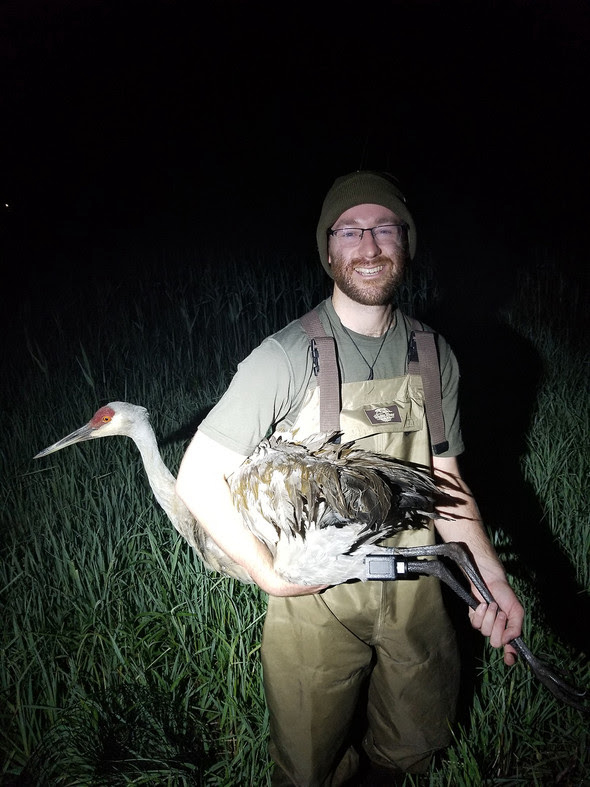
Research specialist Matt Garrick holds a sandhill crane at a Story County wetland on the morning of May 24. This is the first time a sandhill crane has been banded in Iowa. The tracking device will provide information on sandhill cranes in Iowa, nesting habits and where they spend their winters. Photo courtesy of the Iowa DNR.
|
The Iowa Department of Natural Resources (DNR) has outfitted a greater sandhill crane with a GPS transmitter as part of a small pilot study to learn more about this unique species that is increasingly calling Iowa’s wetlands home.
|
Matt Garrick, research specialist from the Iowa DNR’s Clear Lake office, said it’s the first time the DNR has placed a tracking device on a sandhill crane and hopes the study will help shed some light on the behavior patterns of these birds. “We’re trying to learn more about Iowa cranes, the habitat they use here, where they nest and migration habits,” Garrick said. Garrick placed the first of hopefully 10 GPS transmitters on a greater sandhill crane in Story County early on May 24. The crane was released unharmed, immediately after being fitted with the transmitter, and has resumed normal activity. Iowans are encouraged to report sightings and locations of nesting cranes to matt.garrick@dnr.iowa.gov. Greater sandhill cranes were extirpated from Iowa in the late 19th century due to habitat loss and overharvest. As their historic wetland habitats returned and population recovered, the sandhills began to return to Iowa and were first documented successfully nesting here in 1992. Today, sandhill nests have been documented in 27 counties. Sandhill cranes can live up to 35 years in the wild. They generally have small clutches – two eggs – and fewer than 30 percent survive to take flight. The small pilot study is a partnership between the Iowa DNR and Iowa State University. Sandhill cranes are protected in Iowa. Media Contact: Matt Garrick, Waterfowl Research Specialist, Iowa Department of Natural Resources, 641-425-2915. |